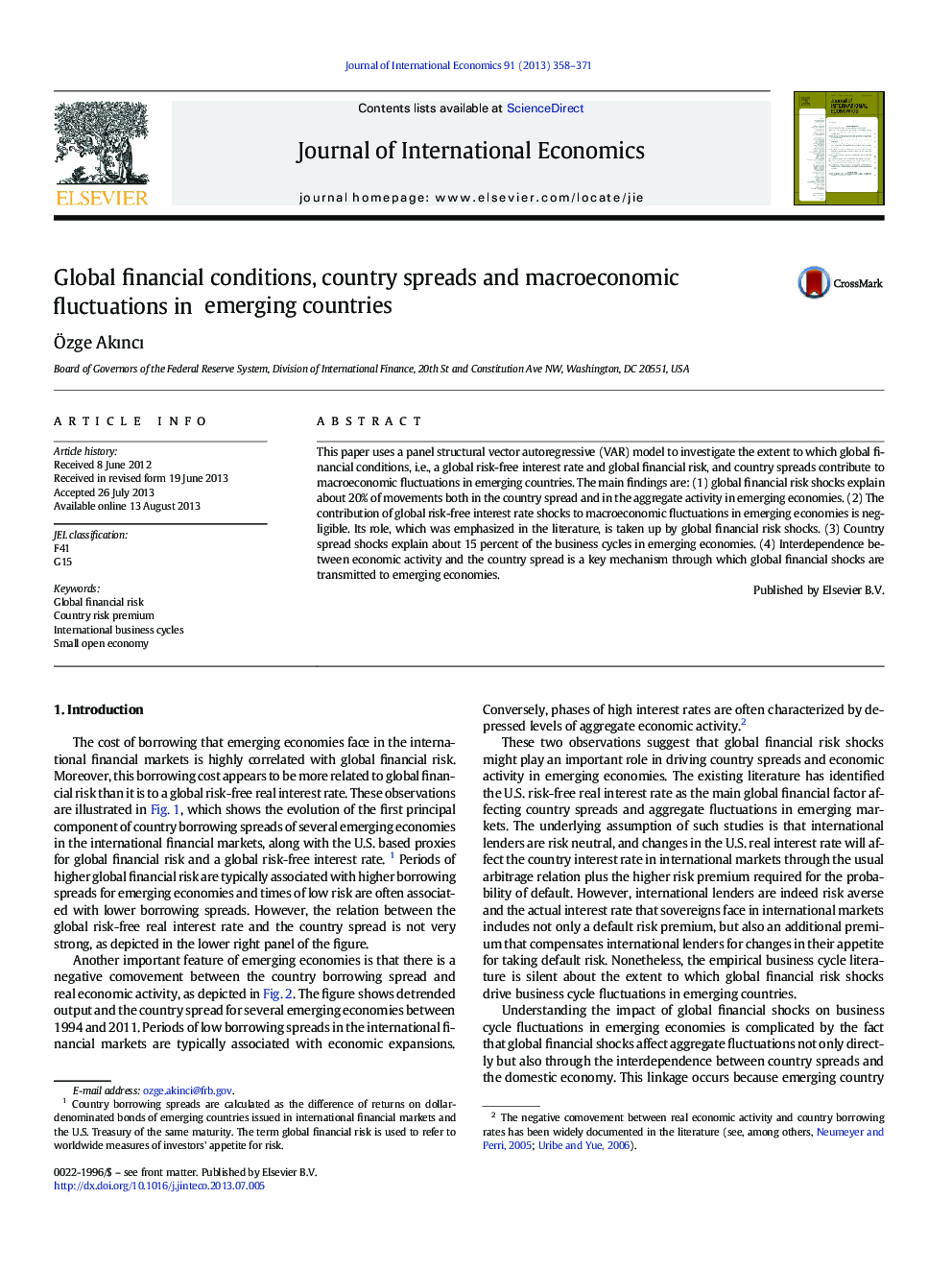| Article ID | Journal | Published Year | Pages | File Type |
|---|---|---|---|---|
| 962512 | Journal of International Economics | 2013 | 14 Pages |
Abstract
This paper uses a panel structural vector autoregressive (VAR) model to investigate the extent to which global financial conditions, i.e., a global risk-free interest rate and global financial risk, and country spreads contribute to macroeconomic fluctuations in emerging countries. The main findings are: (1) global financial risk shocks explain about 20% of movements both in the country spread and in the aggregate activity in emerging economies. (2) The contribution of global risk-free interest rate shocks to macroeconomic fluctuations in emerging economies is negligible. Its role, which was emphasized in the literature, is taken up by global financial risk shocks. (3) Country spread shocks explain about 15 percent of the business cycles in emerging economies. (4) Interdependence between economic activity and the country spread is a key mechanism through which global financial shocks are transmitted to emerging economies.
Related Topics
Social Sciences and Humanities
Economics, Econometrics and Finance
Economics and Econometrics
Authors
Ãzge Akıncı,
